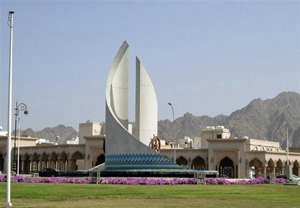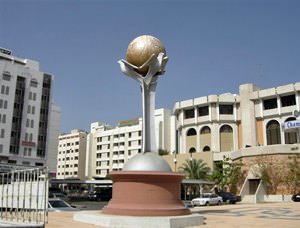 Arabs make up the majority of Oman’s population. East Africa has made a great impact on the ethnicities that live in the country, but descendants of Bedouins and East Africans are considered Arabs in the country. Iranian Baloch tribe do not consider themselves Arabs. Besides them, such ethnicities as Indians, Bangladeshi, and Pakistani live in Oman. The country has become home to people of different races, but tensions between different ethnic groups and races are very rare. Arabian is the official language of Oman, and all people in the country speak it. There are also groups that speak Urdu, Balochi, and Hindu. Locals learn English as a universal language, and many are fluent speakers of this language. Almost everyone in Oman can speak at least basic English. Dialects of Arabian are different from region to region.
Arabs make up the majority of Oman’s population. East Africa has made a great impact on the ethnicities that live in the country, but descendants of Bedouins and East Africans are considered Arabs in the country. Iranian Baloch tribe do not consider themselves Arabs. Besides them, such ethnicities as Indians, Bangladeshi, and Pakistani live in Oman. The country has become home to people of different races, but tensions between different ethnic groups and races are very rare. Arabian is the official language of Oman, and all people in the country speak it. There are also groups that speak Urdu, Balochi, and Hindu. Locals learn English as a universal language, and many are fluent speakers of this language. Almost everyone in Oman can speak at least basic English. Dialects of Arabian are different from region to region.
1. Omanis value politeness. When meeting someone you know, don’t forget to greet that person and smile, and only then start a conversation. Men and …
Read further
Read further
Children are cherished in Oman, so travelers with children will find it interesting to make a vacation in this country. Young tourists will be excited …
Read further
Read further
 When talking to others, local people prefer to keep some distance, usually at arm’s length. This distance can be somewhat bigger when talking to women. Men and women do not touch each other in public places, and men can hold hands – this is a symbol of close friendship. Omanis know how to live in harmony, skillfully combining modern technologies with ancient traditions of ancestors. They are proud of the rich heritage of their country and do not hide this. In accordance with a tradition, local banks, shops, and various public offices are closed at the midday, roughly, from 1 to 4 pm.
When talking to others, local people prefer to keep some distance, usually at arm’s length. This distance can be somewhat bigger when talking to women. Men and women do not touch each other in public places, and men can hold hands – this is a symbol of close friendship. Omanis know how to live in harmony, skillfully combining modern technologies with ancient traditions of ancestors. They are proud of the rich heritage of their country and do not hide this. In accordance with a tradition, local banks, shops, and various public offices are closed at the midday, roughly, from 1 to 4 pm.
Exotic and oriental Oman is like one giant market full of interesting items, fresh fruit, and mind-blowing sweets. Shopping is simply irresistible …
Read further
Read further
 Five times a day, life stops in Oman as this is the time for prayers that start at half past four in the morning and end after the sunset. Omanis are punctual, but if someone has family troubles, it is considered a reasonable excuse for being late. The sultan and his family are at the top of the social ladder in Oman, the richest families of the country are one step lower. Then, there is a relatively small mid-class and a much bigger lower class. Omanis are curious and enjoy listening to stories about life in other countries. Their cheerfulness and friendliness do not allow them to criticize others. They also do not like discussing such themes as politics, religion, and other serious subjects.
Five times a day, life stops in Oman as this is the time for prayers that start at half past four in the morning and end after the sunset. Omanis are punctual, but if someone has family troubles, it is considered a reasonable excuse for being late. The sultan and his family are at the top of the social ladder in Oman, the richest families of the country are one step lower. Then, there is a relatively small mid-class and a much bigger lower class. Omanis are curious and enjoy listening to stories about life in other countries. Their cheerfulness and friendliness do not allow them to criticize others. They also do not like discussing such themes as politics, religion, and other serious subjects. 

